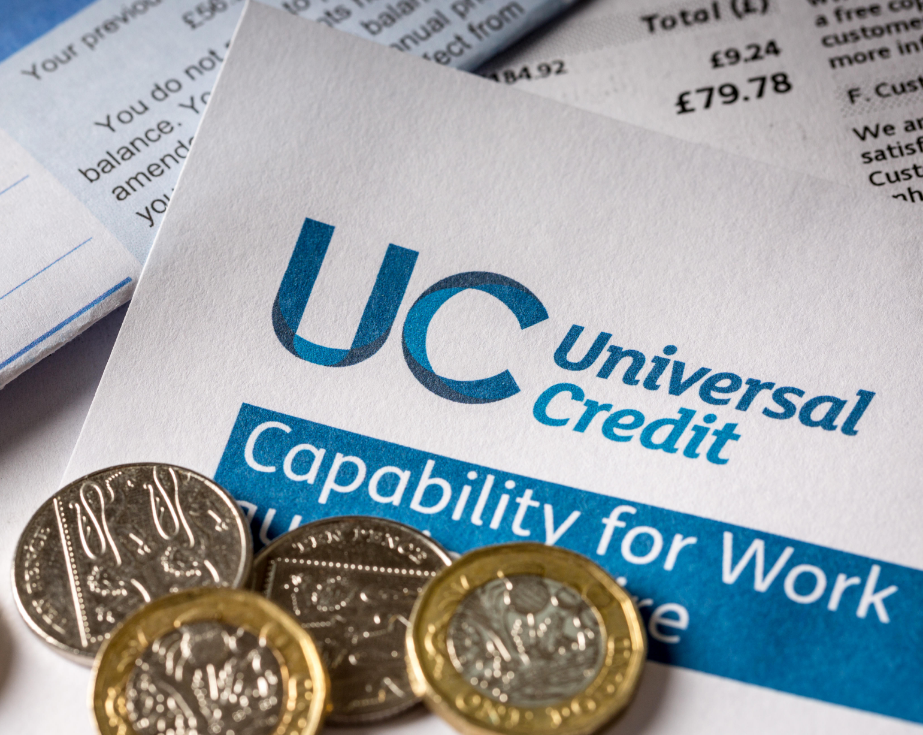Universal Credit (UC) is a significant overhaul of the welfare system in the UK, designed to simplify the benefits process and support people both in and out of work. Introduced to replace six means-tested benefits, UC aims to streamline claims and encourage employment. Understanding Universal Credit is crucial for anyone navigating the welfare system, as it affects millions of people across the country.
What is Universal Credit?
Universal Credit is a social security payment that was introduced to simplify the benefits system and provide a safety net for people in need. It combines six benefits into one monthly payment, including Jobseeker’s Allowance, Housing Benefit, Working Tax Credit, Child Tax Credit, Income Support, and Employment and Support Allowance.
Why Was Universal Credit Introduced?
The main goal of Universal Credit was to address the complexity and inefficiency of the previous benefits system. By consolidating multiple benefits into a single payment, the government aimed to reduce administrative costs and errors, making it easier for claimants to manage their benefits. Additionally, UC was designed to encourage employment by tapering benefits gradually as income increases, rather than cutting them off abruptly.
Who is Eligible for Universal Credit?
To be eligible for Universal Credit, you must meet certain criteria:
- Be over 18 years old (with some exceptions for 16-17-year-olds)
- Be under State Pension age
- Live in the UK
- Have low income or be out of work
- Have savings and investments below £16,000
There are exceptions and special conditions, so it’s important to check specific eligibility requirements based on your circumstances.
How to Apply for Universal Credit
Applying for Universal Credit is done online. Here’s a step-by-step guide:
- Create an Account: Visit the UC website and set up an online account.
- Fill in the Application: Provide personal details, income information, and details about your living situation.
- Submit Documentation: Upload required documents such as ID, tenancy agreements, and income proof.
- Interview: Attend a work-focused interview at your local Jobcentre Plus.
Components of Universal Credit
Universal Credit is made up of a standard allowance and additional elements that may apply based on your circumstances:
- Standard Allowance: This is the basic amount you are entitled to, which varies depending on age and relationship status.
- Additional Elements: These can include housing costs, childcare costs, support for disabled children, and support for carers.
Also Check: Justin Billingsley Connecticut: Successful Career
Payment Structure
We calculate payments based on your earnings, savings, and circumstances. UC is usually paid monthly, but you can request more frequent payments if you’re struggling. The amount you receive decreases as your income increases, ensuring that work always pays.
Managing Your Universal Credit Account
Once you’ve set up your Universal Credit account, it’s important to manage it effectively:
- Online Management: Use your online account to check tools like AI story generator, payments, report changes, and communicate related things with your work coach.
- Reporting Changes: Inform UC promptly about changes in income, household, or personal circumstances to avoid overpayments or underpayments.
Common Challenges and How to Overcome Them
Navigating Universal Credit can be challenging. Common issues include:
- Application Delays: Ensure you provide all required information accurately to avoid delays.
- Incorrect Payments: Double-check your payment calculations and report discrepancies immediately.
- Appeals Process: If you disagree with a decision, you have the right to appeal. Follow the official process and provide any supporting evidence.
Support and Resources Available
There are numerous support services available to help with Universal Credit:
- Government Support: Jobcentre Plus offers assistance, and the UC website has comprehensive guides.
- Non-Governmental Organizations: Charities like Citizens Advice provide free advice and support for claimants.
Impact of Universal Credit on Different Demographics
Universal Credit impacts various groups differently:
- Families: Additional elements can help with childcare costs.
- Disabled Individuals: Extra support is available for those with disabilities.
- Single Adults: UC can provide crucial support for single adults without other income.
Criticisms and Controversies
Universal Credit has faced significant criticism since its introduction:
- Public and Political Opinions: Critics argue that UC has led to increased financial hardship for some claimants.
- Key Criticisms: Issues include delayed payments, complex application processes, and insufficient support.
Success Stories
Despite the controversies, there are success stories where Universal Credit has provided vital support:
- Positive Outcomes: Many have found employment and improved financial stability thanks to UC.
- Personal Testimonials: Claimants have shared how UC helped them through tough times and enabled them to find work.
Future of Universal Credit
The future of Universal Credit involves continuous adjustments to improve the system:
- Planned Changes: The government regularly updates UC policies to address issues and improve efficiency.
- Long-term Vision: The aim is to create a more streamlined, fair, and supportive welfare system.
Conclusion
Universal Credit is a complex but essential part of the UK’s welfare system. It aims to simplify benefits and encourage employment, though it has faced criticism and challenges. By understanding how it works and knowing where to seek support, claimants can navigate the system more effectively.
FAQs
Q: What happens if I miss a payment?
A: If you miss a payment, contact your work coach or the UC helpline immediately to report the issue and seek advice.
Q: How long does it take to receive the first payment?
A: The first payment usually takes about five weeks from the date you submit your claim. You can apply for an advance if you need money sooner.










